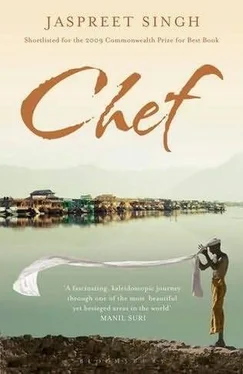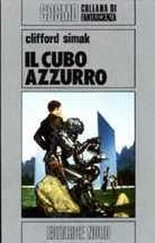I had lost all contact with Chef. Before the war, the radio operator Nair used to help me keep in touch with Kishen. But during the war he heard nothing from Siachen. News about him reached the kitchen only after the ceasefire, which took place sixty days later. The news was not good. He was alive. But during a two-day leave in Srinagar he had tried to kill himself.
From the kitchen window I saw helicopters hovering over the hospital and the parade ground in the valley below. They shook the plane trees left and right. I cycled to the hospital. Men dead and near dead were being whisked into Emergency. I remember the shadows of the men who carried the stretchers. Voices of soldiers who wanted to delay their amputations, the surgery, because they were hungry. They had not eaten for days.
Even the nurses and doctors looked sleep-starved and hungry. The wards were filled with dying men, and the corridors packed with badly wounded men or those with one arm or leg.
Kishen’s bed was in a small room in that overflowing hospital. Normally it was a maternity room, but it had been opened up for this special ‘suicide’ case. The matter was under investigation. Two guards stood outside the room. Kishen, glacier-wallah, is in operating theatre, they told me. When will he return? We don’t know. We know nothing. No one knew what was going on in the hospital. There were many new nurses, and they all looked alike. I waited for a long time by the metal bed. The pillow on the bed had a hollow and I looked at the hollow and his name and rank and 23rd Battalion on a sheet glued on to the wall. His boots were under the bed. The stencil on his black trunk said: Brij Kishen, NCO, 23rd Battalion. They had moved all his things from the glacier to the ward. Lying on top of the trunk was his pen. I picked it up. I had seen him jotting in his journal with that pen many times in the kitchen.
During the war we all did unnatural things and I was no exception. Rubiya, too, those days began doing unnatural things. School was canceled. General Sahib had postponed the Goan ayah’s annual leave – as a result the woman was always in a foul mood, not really taking care of the girl. Rubiya developed a fascination for observing fire. She would throw things she liked or disliked into the fireplace in the living room and watch them burn. Flames would consume the objects, soon they would crackle along the logs of pine and deodar in the fireplace, and it was possible to see the soot particles floating in the air. The girl made no distinction between what was useless and what was precious, she whimsically discarded her father’s things, even her dead mother’s clothes and ornaments and photos. She would sit next to the fireplace after the act and watch the roaring flames reduce the materials to ashes. She would feel the waves of heat hit her cheeks (I thought), then run away and hide for long hours somewhere in the big residence. Once or twice she was found hiding in my room, which was not even attached to the house. Several times Sahib scolded and even punished her but the war sent him away from the residence. I saw him briefly in the hospital the day I went down looking for Kishen. Back in the residence I was a bit stunned to encounter him again after such a short duration of time. Rubiya received a harsh scolding from her father during dinner. The girl refused to touch the food I had cooked and ran to her room. Sahib retired to his bedroom, he made no attempt to make up with the sobbing girl. Because of shortage of staff I doubled as the orderly and personally took the after-dinner tea to his room. He was pacing up and down in the room, which was huge, but in extreme chaos, the bed unmade, the chairs and tables pointing in different directions. I left the tray on the center table. On the side of the table I noticed a pile of confidential files and not far from the files a red journal. On the spine Kishen’s Hindi signature was visible. What was it doing in Sahib’s bedroom? The Hindi was a bit faded, but it was still there. I felt like flipping through it, but restrained myself.
‘Kip, no need to stir sugar.’
‘Sir.’
‘You may leave.’
‘Goodnight, sir.’
Back in the kitchen I tried to conjure up the course of events that must have happened. The CO of the regiment must have sifted through Kishen’s belongings after the suicide attempt, then handed the journal to the Intelligence Branch and the intelligence-wallahs dispatched it to Gen Sahib via a senior officer.
Standing in Sahib’s room I kept hearing an echo of Chef Kishen’s voice. I had to do something. I was afraid, but I had to do something. ‘If you see this journal in the wrong place, destroy it, Kirpal.’
This is the detail. Two days later the journal has still not left Sahib’s table. I enter Sahib’s room in the afternoon after his departure. I am about to pick up the thing when I hear voices. Ayah and Rubiya in the corridor. What if they discover me in the room? But. The voices recede. Soon ayah is in the bathroom, Rubiya starts playing barefoot in the garden with her dog. I am still in Gen Sahib’s bedroom, standing by the table. I pick up the confidential files and the journal, rush to the warm living room.
That evening the General based on the report from ayah scolds and punishes Rubiya for having burned to ashes his important documents. That’s the limit, he says. You’ve burned my top-secret documents. She cries. She protests. But, Papa, she says, I didn’t do it. Papa doesn’t believe her. Ayah doesn’t believe her either. Sahib, here is the only half-burned page from those files, says the ayah. The page flew out of the fireplace, says the ayah. Papa, I didn’t do it. No, Papa. The girl is losing her faith in the world. I didn’t realize this thing then; now I know better.
I have never been able to pardon myself for having given the girl so many tears, so much anguish. Ever since that moment I have felt a different person. Again and again I go back to that moment. I see myself rushing to the living room with the files and the journal in my hand. Through the window I make sure Rubiya is playing in the garden outside, her dog is panting, going round in circles. I make sure I hear the sound of water in the bathroom, a woman is taking her bath in there. I am in front of the fireplace. Waves of heat hit my face. I shake, I hesitate, I sense the presence of the dead woman in the painting, her ghostly gaze. I change my mind. But my mind is made up. I let the things in my hands go. Little tongues of fire start licking the pages. Then the crackle, the sparks, the roar.
The only item I could not throw into the flames was the journal. Later in my room I opened the journal, not to judge anyone, but to simply find out why Kishen wanted to kill himself. What kind of information, scribbled inside the journal, was sensitive enough to cause its relocation to Sahib’s room?
It is a little thing – seven inches by five inches – no more than two hundred pages. In Delhi, for a long time, I kept it under lock and key, but as I was setting out on this journey I picked it up and brought it with me. It is now with me on this train. The first time I tried to read it (in the General’s kitchen) was extremely difficult. Chef wrote the entries very tightly, in bad handwriting, and in two languages, Hindi and Punjabi.
The first few pages are recipes of simple salads – somewhat exotic, but perfectly suitable for Indian taste buds:
Tomato and Feta Cheese Salad
900g tomatoes
200g feta cheese
120ml olive oil
12 black olives
freshly ground pepper
Serves 4
In bold letters he emphasizes: Black olives are a must, not green, not sun-dried black olives, but juicy black olives.
The next few pages are filled with complaints about the absence of olives in Indian cooking. How hard it is to find this thing in Indian stores, and the troubles he had to go through to acquire olives. He ends a page with an invention of a new olive side dish, the olive raita. He ends the next page with another invention: mirchi (green cayenne pepper) chocolate fondue. Two pages later he comments on his fascination for cheese. He complains about the lack of good cheese in Indian cooking. Paneer is fine, but there are more than 462 types of cheeses, maybe more. He praises Brie and Roquefort in particular. Why do we borrow certain things from foreigners and not the rest? he writes. Why do we adapt to tomatoes and kidney beans and not cheese? Indian cooking seems impossible without tomatoes. But tomatoes moved to our country from Mexico. Only one hundred years ago we started using them in our food. Now it is commonplace.
Читать дальше
Конец ознакомительного отрывка
Купить книгу












